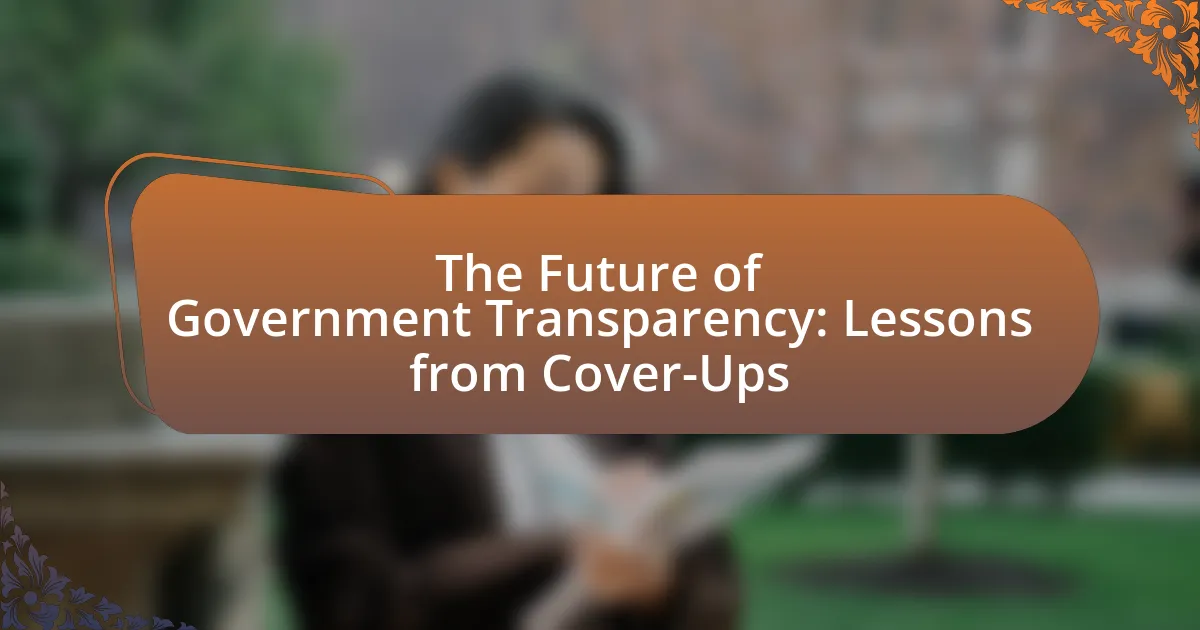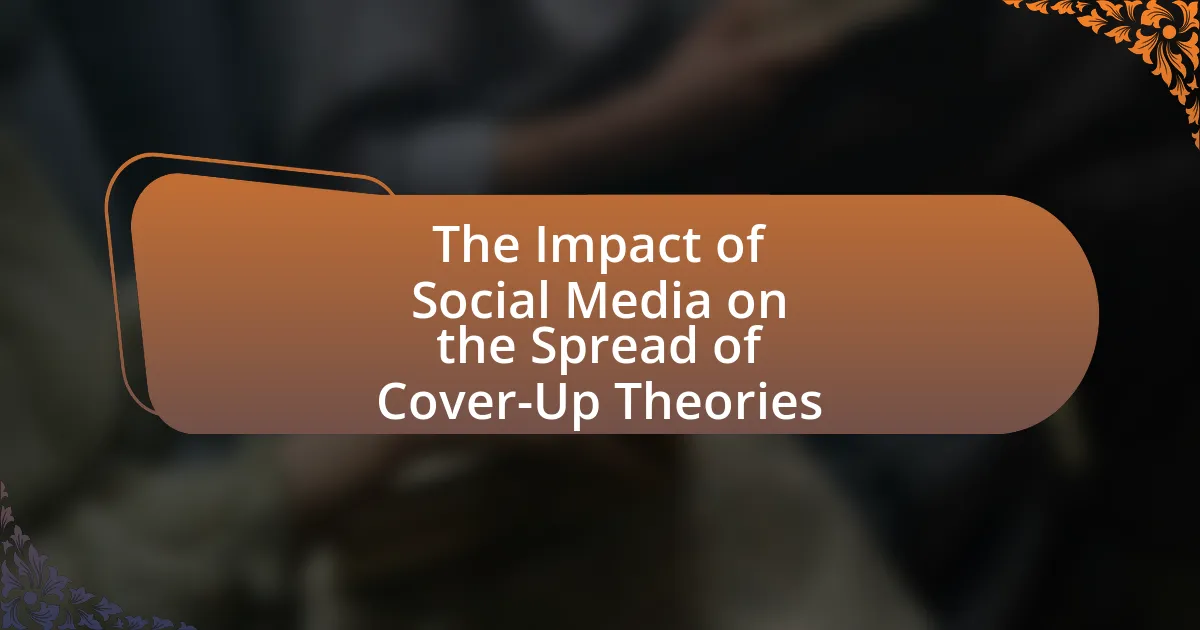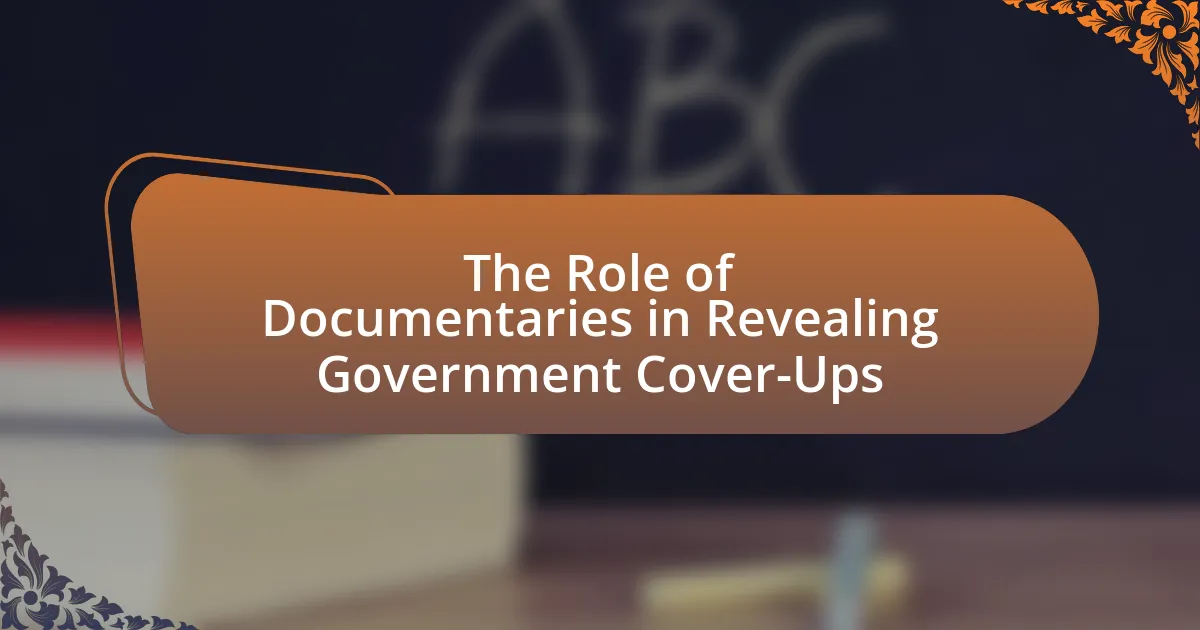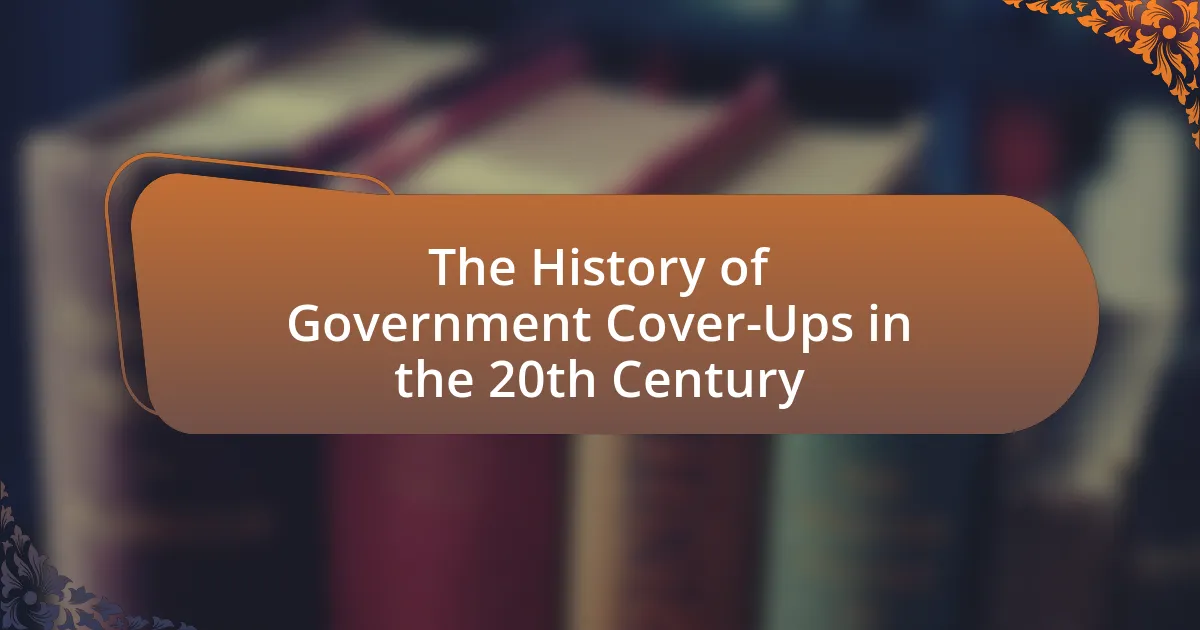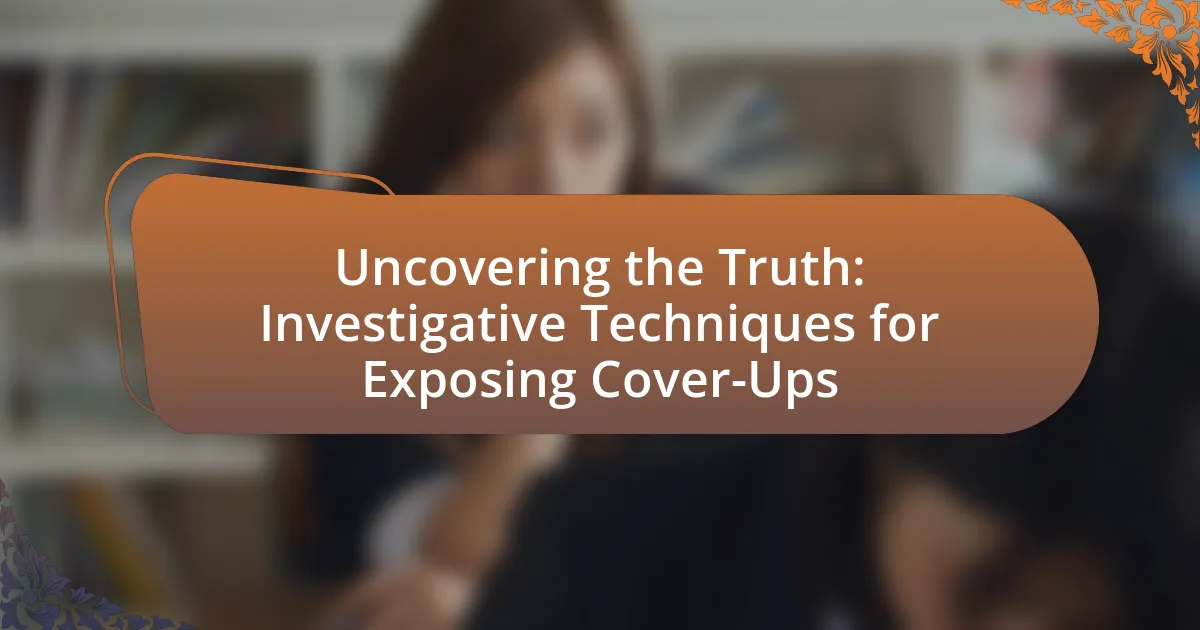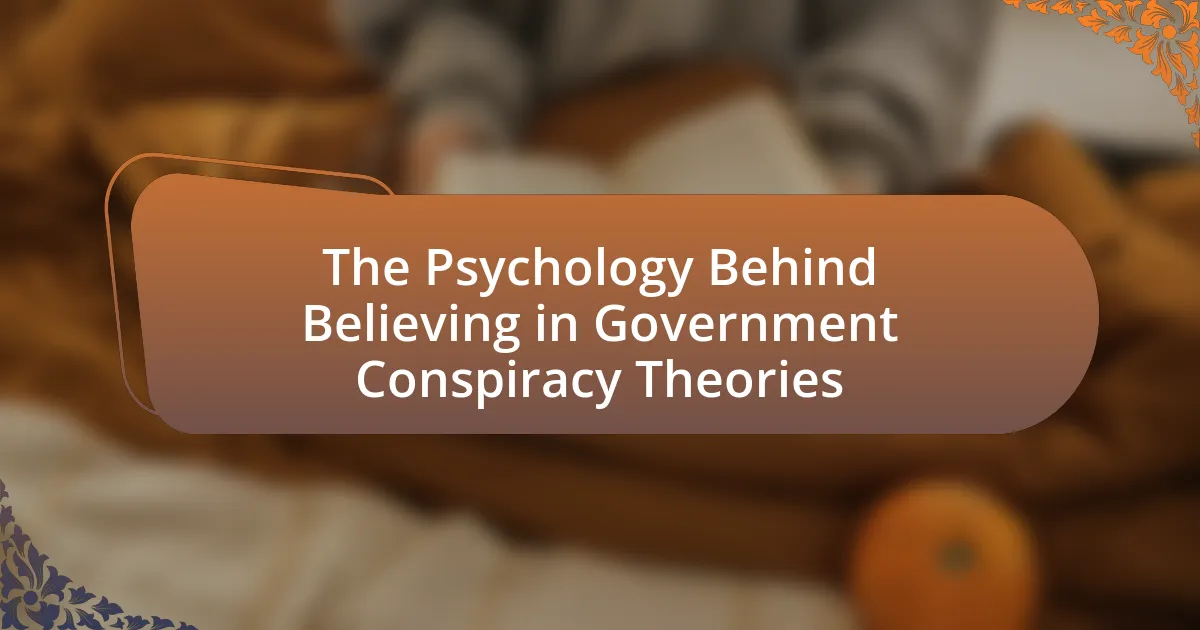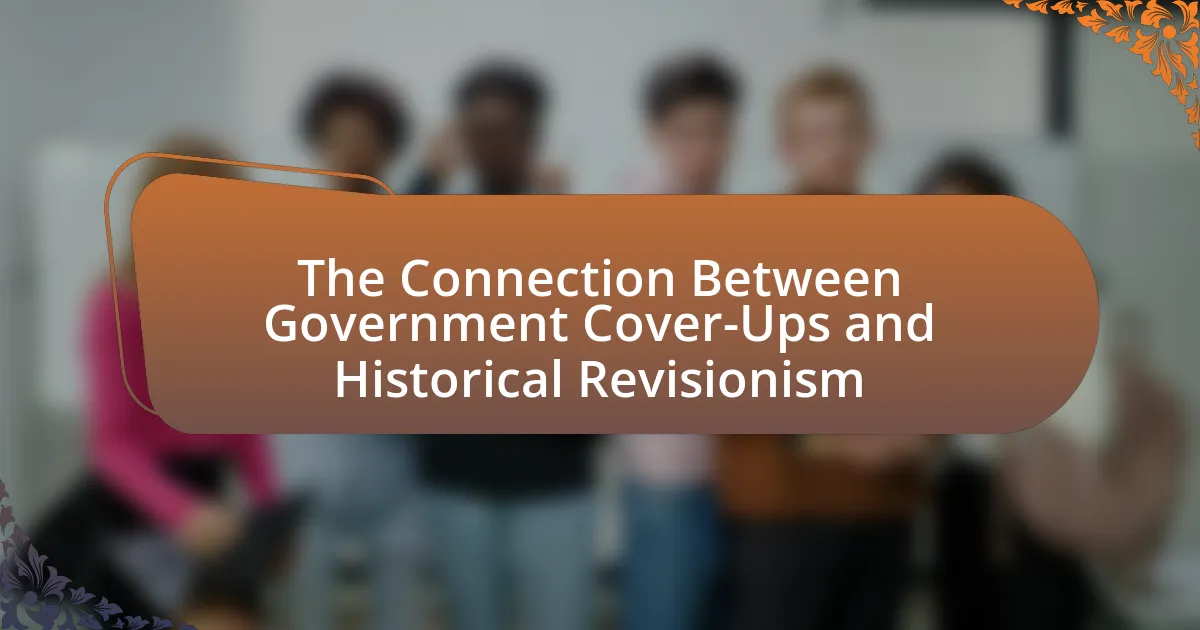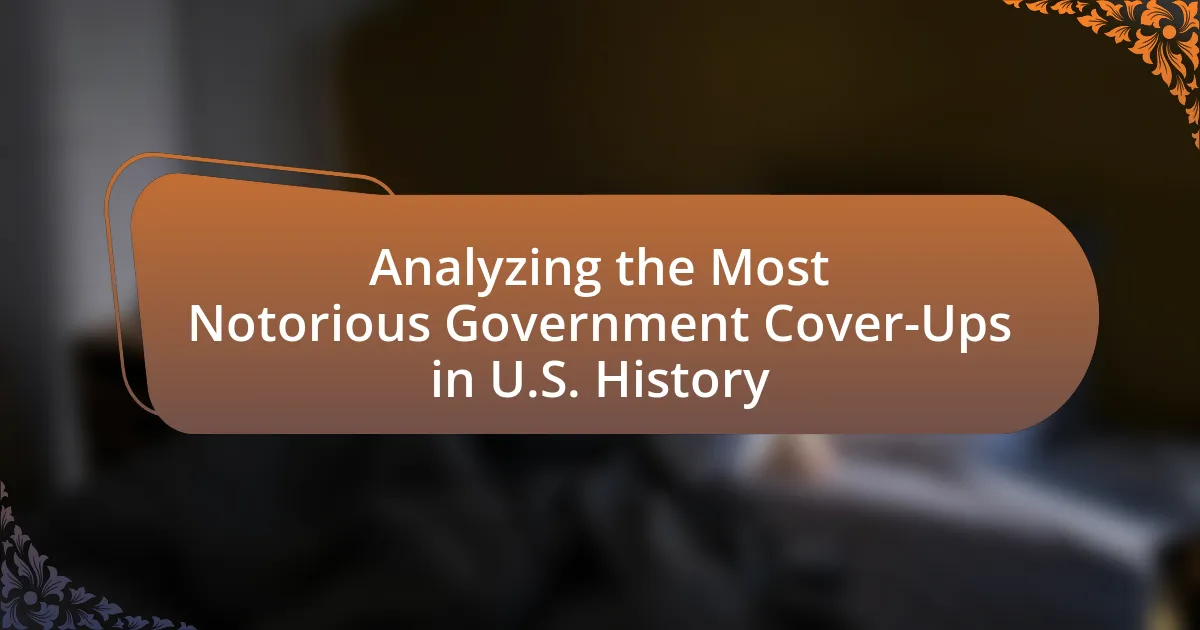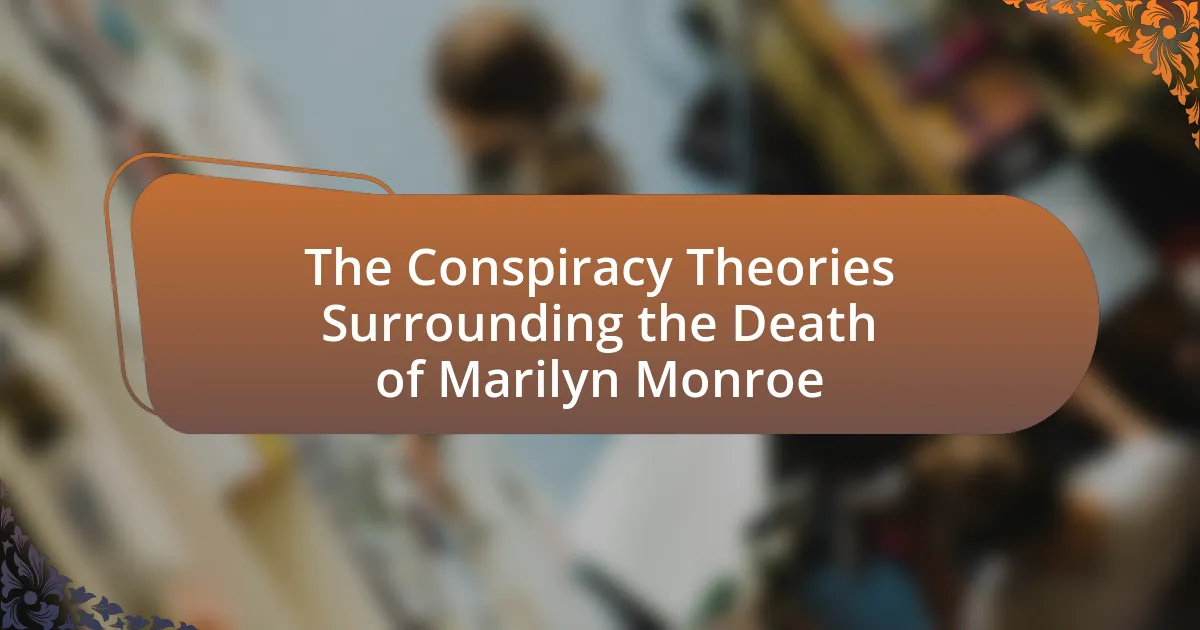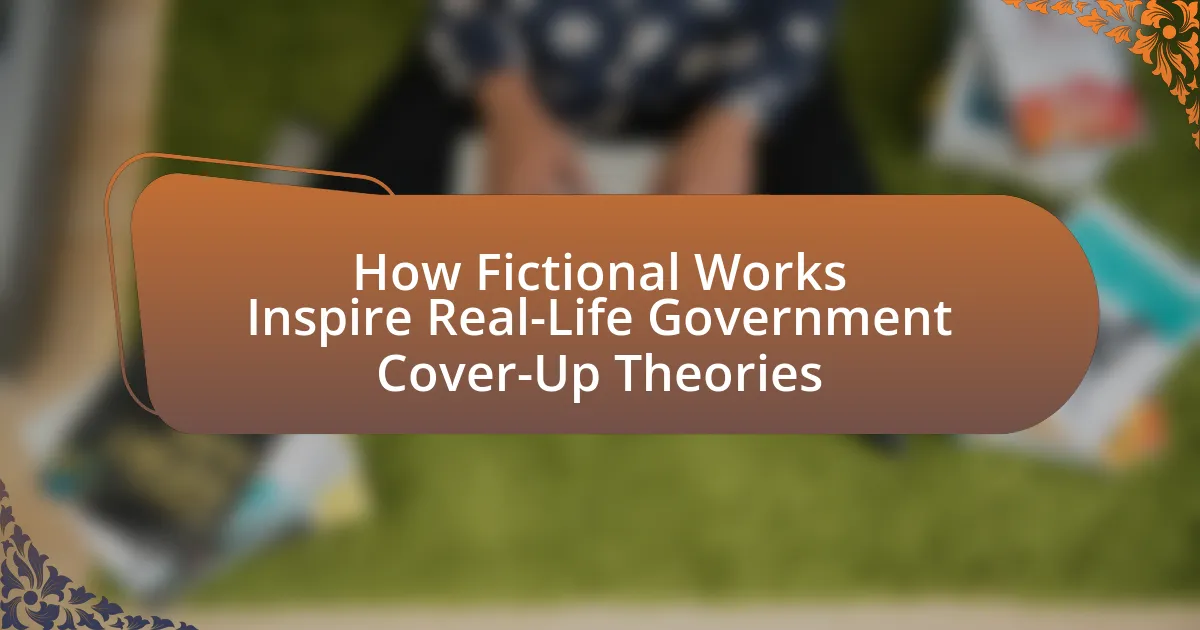The article examines the future of government transparency, emphasizing the role of technology and historical events in shaping current practices. It highlights the evolution of transparency from secrecy to openness,…
The Impact of Social Media on the Spread of Cover-Up Theories
The article examines the significant impact of social media on the spread of cover-up theories, highlighting how platforms facilitate rapid information dissemination and community engagement. It discusses the role of…
The Role of Documentaries in Revealing Government Cover-Ups
Documentaries serve a vital role in uncovering government cover-ups by investigating and presenting evidence that challenges official narratives. They utilize techniques such as interviews, archival footage, and expert analysis to…
The History of Government Cover-Ups in the 20th Century
The article examines government cover-ups in the 20th century, highlighting deliberate efforts by state authorities to conceal significant events and scandals from the public. Key examples include the Watergate scandal,…
Uncovering the Truth: Investigative Techniques for Exposing Cover-Ups
The article “Uncovering the Truth: Investigative Techniques for Exposing Cover-Ups” focuses on various methods employed to reveal concealed information and ensure accountability in society. It outlines investigative techniques such as…
The Psychology Behind Believing in Government Conspiracy Theories
Government conspiracy theories are beliefs suggesting that government entities engage in secretive and often harmful activities hidden from the public. These theories typically emerge from a distrust of official narratives,…
The Connection Between Government Cover-Ups and Historical Revisionism
The article examines the relationship between government cover-ups and historical revisionism, highlighting how both practices manipulate information to influence public perception and control narratives. It discusses notable examples, such as…
Analyzing the Most Notorious Government Cover-Ups in U.S. History
The article analyzes the most notorious government cover-ups in U.S. history, focusing on significant events such as the Watergate scandal, the Tuskegee syphilis study, and the Iran-Contra affair. It explores…
The Conspiracy Theories Surrounding the Death of Marilyn Monroe
The article examines the conspiracy theories surrounding the death of Marilyn Monroe, which suggest that her passing on August 5, 1962, was not a suicide as officially reported, but rather…
How Fictional Works Inspire Real-Life Government Cover-Up Theories
The article examines how fictional works influence public perceptions of government cover-ups, highlighting the role of narratives in fostering skepticism and distrust towards authority. It discusses notable examples such as…
